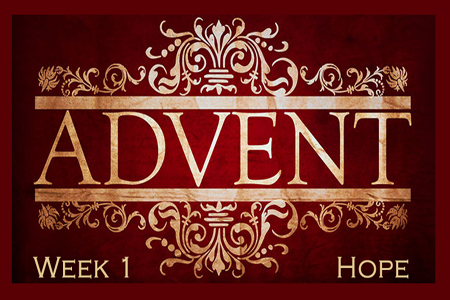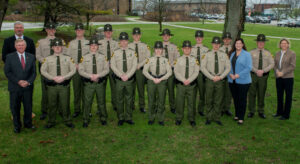Hope

 “He shall judge between the nations, and shall decide disputes for many peoples; and they shall beat their swords into plowshares, and their spears into pruning hooks; nation shall not lift up sword against nation, neither shall they learn war anymore”. Isaiah 2:4
“He shall judge between the nations, and shall decide disputes for many peoples; and they shall beat their swords into plowshares, and their spears into pruning hooks; nation shall not lift up sword against nation, neither shall they learn war anymore”. Isaiah 2:4
This time of year, we use the word “hope” a lot. “I hope the turkey isn’t dry”, “I hope I get the house clean before everyone arrives”, “I hope the kids behave themselves”, “I hope the in-laws don’t stay too long”, “I hope I wake up Christmas morning and find a motorcycle under my tree” (6-year-old me was very disappointed in this hope not coming to fruition).
What we usually mean is “wish”. We desire some positive outcome, but there’s no reason to think that desired outcome is more likely than anything else to occur. We wish for the motorcycle under the tree.
Biblical hope is an entirely different animal. The word we translate “hope” throughout the Old Testament is rooted in a word which means to “trust”. It is not blind wishing; rather it is the expectant hope of a child who trusts their parent to provide what they need, and having so many times before received what was needed, knows the hope is grounded in what will be, not simply in what is desired.
In the Old Testament, the prophets looked forward to a day when the Christ would come and begin setting to rights what was going terribly wrong; war, division, injustice, hatred, violence. These are symptoms of broken fellowship, a broken relationship, with God. It is an issue of the heart of humankind being averse to God and prone to wrong-doing all the time.
The prophets hoped, that is expectantly trusted, that the Christ would be able to provide for the restoration of that fellowship with God when he came. They may not have completely understood at the time what that was going to look like; but they knew their trust was firmly placed in a God who was worthy of trust. Their hope was not rooted in the grandeur of the promise, grand as it might be, but in the greatness of the Promise Giver.
Their hope was vindicated; the Christ did come, and did provide for the restoration of the human heart; the root of all the other wrong which needed to be set right. When Jesus came “…in him all the fullness of God was pleased to dwell, and through him to reconcile to himself all things, whether on earth or in heaven, making peace by the blood of his cross.” -Colossians 1:19-20.
Advent is a season of waiting. Waiting for Christ to come, as the Prophets, and God’s faithful people did. It can, however, be more than an historic exercise: simply remembering that there was a time when others waited. We, waiting as well, can share in this prophetic hope; looking back to what Christ accomplished in his coming, and we can join in the prophetic hope for the future; that which was begun in his incarnation, that is his coming to earth as a human, will someday be fulfilled throughout the earth. We are still an advent people. A hope-filled, waiting, people. A day will come when Christ does return to rule and to reign; and in that day, as the prophet Isaiah saw, where the external weapons of war and destruction once flourished they will be replaced with the tools of productivity and peace; for in the heart of humankind the division, hatred, and broken fellowship with God will have given way to unity with one another and with God. This hope is the hope of sure trust.
Twenty-nine-year-old me may still be wishing for a motorcycle to show up under my tree though.
Daniel Fulton is the pastor of Riverside Nazarene Church in Syracuse, Ohio.









